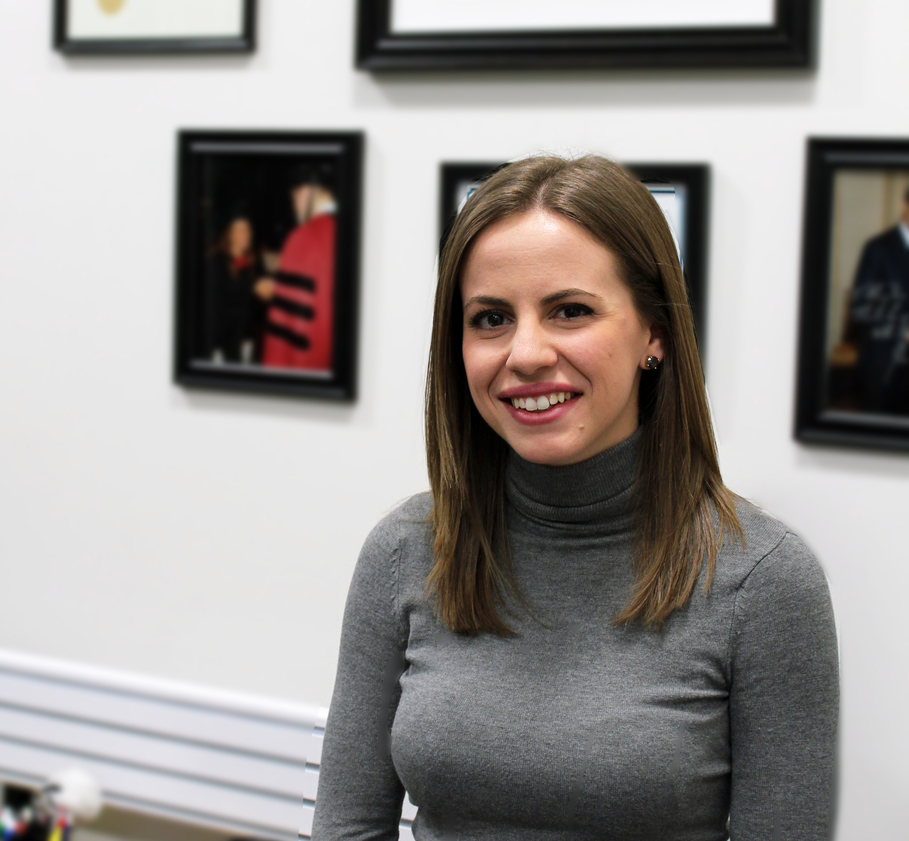Feature
Closing the Wage Gap
Ash alum using data to make “women’s issue” everyone’s issue

In 2016, for every dollar earned by men, women in the Greater Boston Area earned 77 cents, according to a recent report from the Boston Women’s Workforce Council. The city could wait for the wage gap to close over time — estimates by the American Association of University Women say the US will reach equity around 2152 — or do something about it. For MaryRose Mazzola MPP ’15, doing nothing has never been an option, and today she is actively involved in closing Boston’s wage gap as executive director of the Boston Women’s Workforce Council.
The Boston Women’s Workforce Council was formed in 2013 to engage Boston’s local businesses in a campaign to reduce the gender-based wage gap. The council, supported by the Boston Mayor’s Office and under Mazzola’s leadership, collects, analyzes, and shares anonymous data from Boston businesses about pay equity.
In 2016, Mazzola and the Boston Women’s Workforce Council collected data from 69 companies in Boston. This data, totaling 11 percent of greater Boston’s workforce and around $11 billion in annual earnings, revealed Boston’s significant wage gap and provided a baseline against which to measure future progress. These findings were significant, not just for raising awareness, but because they provided quantitative analysis at a local level that previously did not exist.
If you ask Mazzola about “women’s issues” she will tell you, “I don’t really think anything is a woman’s issue. I think we treat them like that because they need more attention, because certain things disproportionately affect women, but I think pay equity is everyone’s issue. I think domestic violence is everyone’s issue. It’s a public safety issue, a public health issue.” However, Mazzola knows that not everyone shares her view and years ago she identified the need for to talk about “women’s issues” quantitatively to help make them real to everyone and engage people who might not be natural allies.
Mazzola has long supported women in Massachusetts, from volunteering at a domestic violence shelter in North Andover to fielding calls at the Massachusetts state house from women who were affected by violence. When she came to Harvard Kennedy School in 2013, having just finished a campaign and position in the office of State Senator Barry Finegold, she knew she wanted to develop data-analysis skills and a network that could help her effectively push the issues she cared about.
At HKS, Mazzola reflects, “if you go, and you ask, and you have a good idea and a problem that you want to solve, that there will be resources there for you.” One such resource was Ash Center’s Assistant Professor Quinton Mayne’s course on public policy in cities; there Mazzola was inspired to engage more at a local level. The following summer, Mazzola was sponsored by the Ash Center and other HKS institutions to travel to Edinburgh, Scotland, to observe the work they were doing at a city level to help victims of domestic violence. Mazzola was impressed by the city’s collaborative approach, bringing together a group of representatives from law enforcement and local government institutions to deal with domestic violence cases so that victims could have continuity amongst the various resources.
Upon her return, Mazzola completed her policy analysis exercise with the commissioner of probation in Massachusetts on domestic violence. As a member of the commissioner’s team, Mazzola used data, never before utilized, to evaluate domestic violence programs that are mandated in Massachusetts.
When Mazzola graduated in 2015, she joined the Boston Mayor’s Office of Women’s Advancement, spent time working with the Women and Public Policy Program at HKS, and worked on the campaign trail for Michele Wu, current president of the Boston City Council. This all led her to her role today with the Boston Women’s Workforce Council, where she says, “This is one of the few examples I’ve seen of working on women’s issues and applying data so significantly. And so for me, it’s a perfect job because it’s a mix of politics and data analysis, and it’s working on issues that I care about.”
Now, every day for Mazzola is different. Some days she is working with businesses, helping them provide data to the council, and on others, she is providing best practices to help businesses and leaders close the wage gap. Everything she does is working towards identifying causes for the wage gap, working to close the wage gap, and evaluating success in Boston. Overall, she says, “Our goal is to make Boston the best place for working women.”
Professor Mayne is optimistic that Mazzola’s work will make an impact, noting, “While state and federal policy remains important, city governments also have at their disposal a range of tools and resources to address longstanding inequities in the health, wealth, and wellbeing of Americans. The work of Boston Women’s Workforce Council and of MaryRose as its executive director is significant in this regard. With its 100% Talent Compact, the Workforce Council offers an excellent example to local governments around the nation of what city halls can do to tackle inequality in the workplace and elsewhere.”
In the future, Mazzola wants to see the perceptions around “women’s issues” change. As she puts it, “Historically, you’ve been fighting for scraps of funding, and I want to see that change to a world where we’re saying ‘we have the data to show that this is a huge issue that affects everyone.’” She asserts that the biggest way to improve the economy would be to get 100 percent of the population’s talent participating in it.